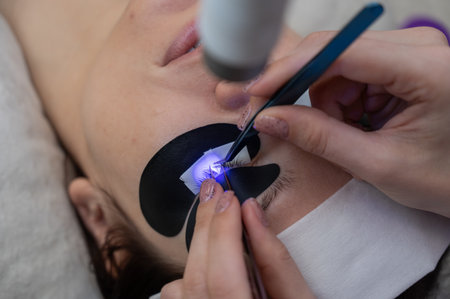Introduction to Laser Skin Resurfacing
Laser skin resurfacing has gracefully carved out its place as a highly sought-after cosmetic treatment across the UK. This innovative procedure uses focused laser technology to gently remove the outer layers of tired or damaged skin, encouraging natural regeneration and revealing a fresher, more youthful complexion beneath. Whether addressing fine lines, acne scars, pigmentation, or simply revitalising dull skin, laser resurfacing offers a versatile solution that appeals to people from all walks of life. The surge in popularity can be attributed not only to its impressive results but also to the growing demand for non-surgical enhancements that fit seamlessly into modern British lifestyles. As you begin to explore this transformative option, understanding its fundamentals will empower you to make confident decisions about your skincare journey.
2. Key Factors Influencing Costs
Understanding what goes into the price tag of laser skin resurfacing is essential if you want to make an empowered decision. In the UK, several elements can affect how much you might pay for this procedure. Here’s a closer look at the most influential factors:
Clinic Location
Where you choose to have your treatment done plays a significant role in cost. Clinics situated in major cities such as London or Manchester often charge more than those in smaller towns due to higher operational costs and demand.
| Location | Average Price Range (per session) |
|---|---|
| London | £400 – £1,200 |
| Manchester | £350 – £1,000 |
| Other UK regions | £250 – £800 |
Practitioner Expertise
The experience and qualifications of your practitioner matter greatly—not only for results but also for safety. Highly experienced dermatologists or aesthetic doctors may charge more, but their expertise can offer peace of mind and superior outcomes.
Why Experience Matters:
- Better assessment of your skin’s needs
- Reduced risk of complications
- Tailored treatment plans for optimal results
Technology Used
The type of laser technology employed can also influence pricing. Some clinics invest in the latest fractional CO2, Erbium, or non-ablative lasers, which may deliver better results with less downtime, but these advanced systems tend to come with higher costs.
| Laser Type | Description | Cost Impact |
|---|---|---|
| Ablative (CO2, Erbium) | Removes outer layers for dramatic results; longer downtime. | Higher cost due to effectiveness and recovery support. |
| Non-Ablative (Fraxel, Nd:YAG) | Pentrates without removing layers; minimal downtime. | Slightly lower cost but may require more sessions. |
A Gentle Reminder:
If youre considering laser skin resurfacing, weigh these factors carefully. Remember, choosing the right clinic and practitioner is just as important as budgeting wisely—your skin deserves both expertise and care.

3. Understanding Pricing Structures
When it comes to laser skin resurfacing in the UK, it’s essential to understand how clinics typically structure their pricing, as this knowledge empowers you to make savvy choices and secure genuine value for money. Most reputable providers offer three main pricing models: per session, per treatment area, or bundled packages.
Per Session: This is perhaps the most straightforward option. You pay a set fee each time you undergo a treatment. While this allows flexibility if you’re unsure about committing to multiple sessions, costs can add up if your desired results require a series of treatments.
Per Area: Many clinics will price procedures based on the size or location of the area being treated—such as the face, neck, or décolletage. Larger or more delicate areas generally incur higher fees, so it’s wise to clarify exactly what’s included before agreeing to a course of treatment.
Treatment Packages: For those seeking comprehensive results, package deals offer multiple sessions at a discounted rate compared to paying individually. Packages may also include aftercare products or follow-up appointments, which can enhance both outcomes and overall value.
As you compare quotes between providers, always check what each price covers—some clinics include consultation fees and aftercare within their rates, while others bill these separately. By understanding these pricing structures, you’ll be better equipped to judge which clinic offers not just competitive pricing but true value tailored to your needs.
4. Private Insurance and NHS Coverage
When considering laser skin resurfacing in the UK, it’s important to have a clear understanding of what role, if any, private health insurance or the NHS may play in covering the costs. For most UK residents, laser skin resurfacing is classified as a cosmetic procedure, which significantly impacts eligibility for financial support from both private insurers and the National Health Service.
Understanding Private Health Insurance Policies
Private health insurance providers in the UK typically exclude elective cosmetic procedures from their coverage. However, there are rare exceptions where laser skin resurfacing might be considered medically necessary—such as treatment for severe scarring following an accident or surgery. Even in these cases, obtaining approval can be challenging, and each insurer will have strict criteria that must be met. It’s crucial to consult your policy documents and speak directly with your provider to clarify what is and isn’t included.
Typical Scenarios for Private Insurance Coverage
| Scenario | Likelihood of Coverage | Additional Requirements |
|---|---|---|
| Pigmentation or age-related concerns | Very Unlikely | N/A – Cosmetic reasons are not covered |
| Treatment of scarring after trauma or surgery | Plausible but Rare | Detailed medical evidence required; pre-authorisation essential |
| Correction of congenital skin conditions affecting daily life | Possible (Case-by-Case) | Consultant referral; comprehensive documentation needed |
NHS Coverage: Realistic Expectations
The NHS primarily provides treatments deemed medically necessary, prioritising patient health and wellbeing over aesthetic improvement. As such, laser skin resurfacing is almost always excluded unless it addresses significant functional impairment or severe psychological distress—situations that are thoroughly assessed by specialists and subject to strict guidelines.
Key Points for NHS Consideration:
- Cosmetic Indications: Not eligible for NHS funding.
- Medically Necessary Cases: Only considered for serious disfigurement or reconstructive purposes.
- Assessment Process: Multi-disciplinary panel review; lengthy waiting times are common.
- Documentation: Extensive clinical evidence and mental health assessment may be required.
If you are contemplating laser skin resurfacing for non-cosmetic reasons, initiate a conversation with your GP, who can guide you through the referral process if there’s a legitimate medical need. Otherwise, for purely aesthetic improvements, anticipate that all costs will be self-funded—making it wise to compare clinics and seek transparent pricing to ensure value for money.
5. Assessing Value for Money
When considering laser skin resurfacing in the UK, it’s absolutely essential to look beyond just the price tag and evaluate the true value you’re receiving. Value for money means balancing cost with the safety of the procedure, the experience of your practitioner, and the lasting quality of your results.
Weighing Price Against Expertise
Bargain prices can be tempting, but remember—highly qualified practitioners with a proven track record often charge more for good reason. It’s worth investing in clinics registered with recognised professional bodies, such as the Care Quality Commission (CQC) or British Association of Dermatologists (BAD), to ensure your safety and satisfaction.
The Importance of Safety Standards
Never underestimate the importance of robust safety protocols. Reputable clinics follow stringent hygiene practices and use advanced technology approved by UK health authorities. Ask questions about their infection control measures and equipment maintenance—it’s your right as a patient.
Considering Long-Term Results
Laser skin resurfacing is an investment in your confidence and well-being. Prioritise clinics that offer detailed consultations, transparent aftercare advice, and realistic expectations regarding results. Sometimes, a slightly higher upfront cost means fewer complications and longer-lasting outcomes—ultimately saving you time, money, and stress down the line.
In summary, making a wise investment means balancing affordability with expertise, safety, and long-term effectiveness. Take your time to research, ask for recommendations, and choose a provider that genuinely prioritises your health and happiness. You deserve nothing less than excellent care tailored to your needs.
6. Tips for Savvy Decision-Making
When considering laser skin resurfacing in the UK, your confidence in making an informed choice is crucial. Start by dedicating time to thorough research—compare clinics, read reviews on independent UK platforms, and look for practitioners registered with bodies like the British Association of Dermatologists or the Care Quality Commission. This ensures you’re dealing with reputable professionals who adhere to strict standards.
Ask the Right Questions
Don’t hesitate to ask direct questions during consultations. Inquire about the practitioner’s experience with your specific skin type, the technology they use, and their complication rates. It’s perfectly reasonable to request before-and-after photos of past patients and ask about their satisfaction levels. Understanding exactly what’s included in the quoted price will help you avoid unexpected costs down the line.
Spotting Reputable Providers
Look for clinics that offer comprehensive aftercare and are transparent about both risks and results. Reputable providers should never pressure you into quick decisions or suggest unnecessary add-ons. Instead, they’ll take time to discuss alternatives and ensure you feel comfortable every step of the way.
Maximising Satisfaction, Minimising Risks
Your peace of mind matters. Trust your instincts—if something feels off or too good to be true, it’s worth pausing and reassessing. Taking these steps not only helps secure value for money but also reduces risks, ensuring your journey towards clearer, more confident skin is as smooth and rewarding as possible.

